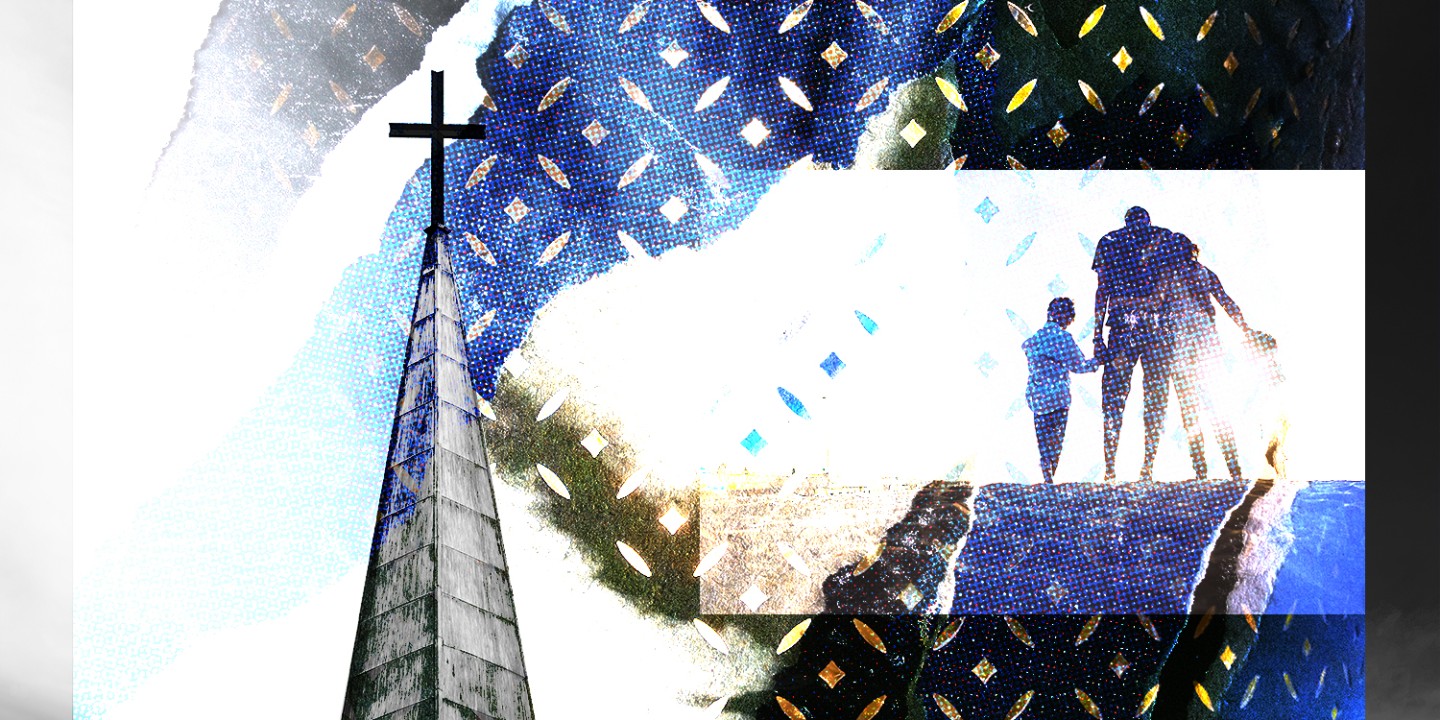Secrets that must not be kept
Clergy-penitent privilege and mandatory reporting exist in complex tension. But child welfare has to come first.

Century illustration / Source images: Getty
In 2010, an Arizona man named Paul Adams confessed to his LDS ward bishop, John Herrod, that he was sexually abusing his young daughter. Herrod called the church’s abuse helpline and spoke with attorney Merrill Nelson, who advised him not to report the abuse. Adams continued the abuse for years—and eventually began abusing another daughter too. Family counseling with Herrod didn’t stop the abuse, nor did Adams’s excommunication in 2013. Adams wasn’t caught until 2017, when police found videos of the abuse that he’d posted online. Three of his children are now suing Herrod, the bishop who succeeded him, and the LDS Church.
The lawsuit—which may be headed to the US Supreme Court—raises questions of religious freedom: Should Herrod and his successor have reported the abuse? And can they be compelled to testify about their knowledge of it? The balance between mandatory reporting of suspected child abuse and clergy-penitent privilege varies from state to state, but most states allow clergy some discretion. In Arizona, clergy-penitent privilege supersedes mandatory reporting if the abuse is disclosed in a pastoral context—and because the penitent is the one who holds the privilege, Nelson told Herrod that reporting Adams could open him up to a lawsuit. However, Arizona also provides legal immunity for anyone who reports child abuse in good faith. Such tension within the law puts clergy in a difficult and confusing position.
In the Catholic Church, the confessional seal is regarded as inviolable because of its sacramental nature, and a priest can be excommunicated for breaking it. There is no such doctrine in the LDS Church, but clergy-penitent confidentiality is the norm—and it comes from good pastoral impulses. Without the presumption of confidentiality, the reasoning goes, penitent believers may avoid confessing their worst sins for fear of being reported. This will hinder their ability to be counseled toward changing their behavior and seeking forgiveness. Many state statutes on clergy-penitent privilege name an intent to protect relationships between clergy and parishioners.
But the gap between intent and result can be very large. In the Adams case, the clergy-parishioner relationship wasn’t protected, it was destroyed—by the consequences of two bishops allowing a serial abuser to continue for years. Adams died by suicide after his arrest, and his wife was incarcerated for failing to stop his abuse. The three oldest children were adopted by local families, and the three youngest live with out-of-state relatives. The girls suffer immensely from the trauma they endured.
There are no doubt pros and cons to mandatory reporting, but when we displace child welfare from the center of our concern we go awry. Only six states explicitly waive clergy-penitent privilege in cases of suspected child abuse or neglect. In most cases it’s up to clergy to decide how to handle a confession of abuse. Reporting can lead to painful repercussions: civil litigation, damaged relationships with parishioners, and punishment by ecclesiastical superiors. But not reporting can lead to those same results—and it also risks allowing abusers to keep hurting children. This dilemma will persist until every state chooses to clearly prioritize children’s welfare above the clergy-penitent relationship.





